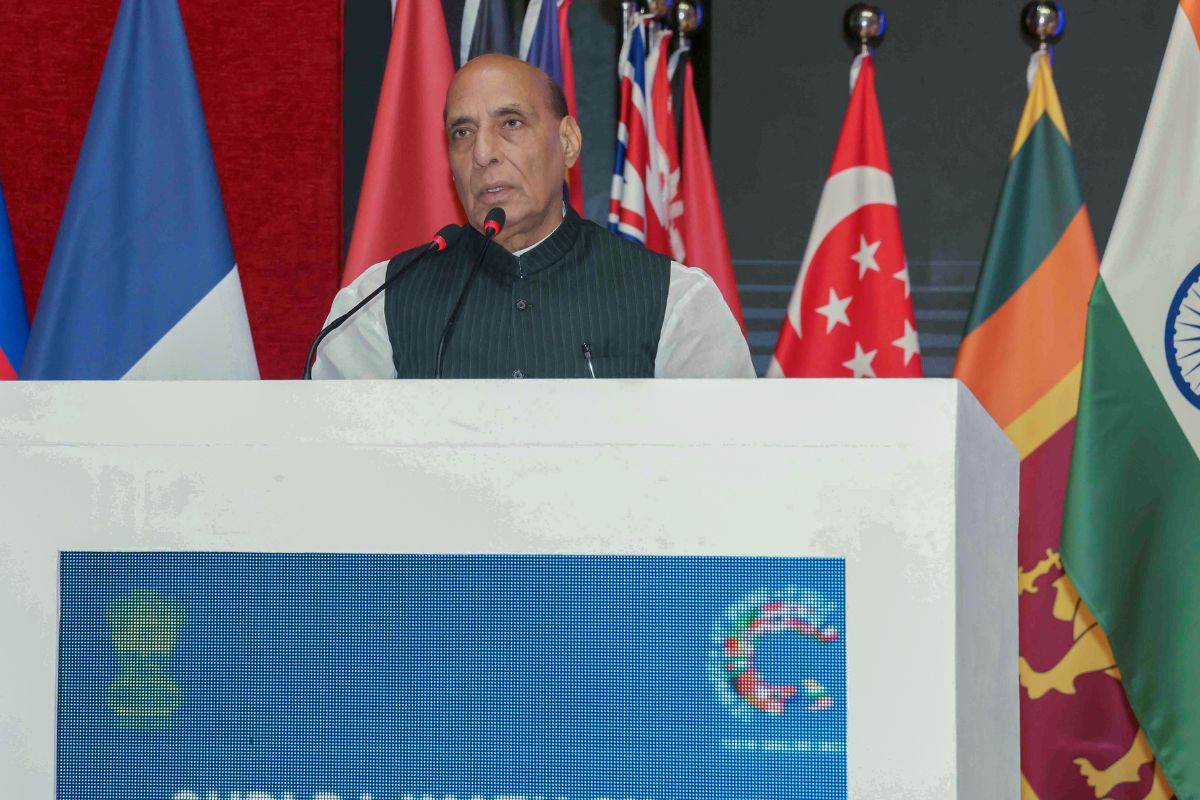Amid China’s aggressive behaviour on maritime and territorial issues, the defence minister, Rajnath Singh, reiterated that India stood for a free, open, inclusive, and rules-based Indo-Pacific region for shared security and prosperity. He said this while delivering the inaugural address at the 13th Indo-Pacific Army Chiefs Conference here, on Tuesday.
The defence minister defined “Neighbourhood First” as the cornerstone of India’s culture from time immemorial.
Advertisement
India’s approach to the region is defined by its “Act-East Policy”, he said, reiterating Prime Minister Narendra Modi’s vision: “Our engagement in the Indo-Pacific is based on five Ss – Sammaan (respect), Samvad (dialogue), Sahyog (cooperation), Shanti (peace), and Samridhi (prosperity).”
Singh said India’s efforts towards building robust military partnerships with friendly countries underscore its commitment to not only safeguard national interests, but also address global challenges faced by all.
On climate change, one of the gravest global challenges, he said the Indian armed forces, with their unwavering dedication and professionalism, are the first responders in disaster situations and contribute to humanitarian assistance and disaster relief (HADR) efforts.
The defence minister suggested that the three-day event discuss ways to enhance interoperability during the HADR operations. “Extreme weather events and natural disasters have become a new normal rather than being an exception and are major challenges in our region. It is our responsibility that the climate change-related concerns of small island nations of the Indo-Pacific are given the importance that they deserve, as these bear the brunt of climate change as an existential crisis,” he said.
Singh added that while it is a difficult task to arrive at a consensus plan of action in a big group, it is not impossible with determination and empathy. He referred to the recently concluded G20 summit in New Delhi and stated that the group of countries adopted the New Delhi Leaders’ Declaration with consensus on all developmental and geo-political issues, making it historic and pathbreaking.
The defence minister called for collective wisdom and concerted efforts to deal with the complexities of the Indo-Pacific region, while tapping its full potential, to ensure a future marked by prosperity, security, and inclusivity, in consonance with the ancient Indian ethos of “Vasudhaiva Kutumbakam (The World is One Family)” and the G20 motto “One Earth, One Family, One Future.”
He emphasized that the Indo-Pacific is no more a maritime construct, but a full-fledged geostrategic construct, and the region is facing a complex web of security challenges, including boundary disputes & piracy. He explained his vision through a theoretical model by American author and speaker Stephen R Covey, which is based on two circles – “Circle of Concern”, which encompasses everything one cares about, including things which can be controlled and things which cannot, and “Circle of Influence”, which comprises things over which one has direct control or can exert some degree of influence.
The Indian Army and the United States Army are co-hosting 13th IPACC, 47th IPAMS, and 9th SELF, in New Delhi from September 25 to September 27. The central theme for this forum is “Together for Peace: Sustaining Peace and Stability in the Indo-Pacific Region.”
The chief of defence staff, General Anil Chauhan, the Army chief, General Manoj Pande, and the army chiefs and delegates of 35 countries were present on the occasion.











